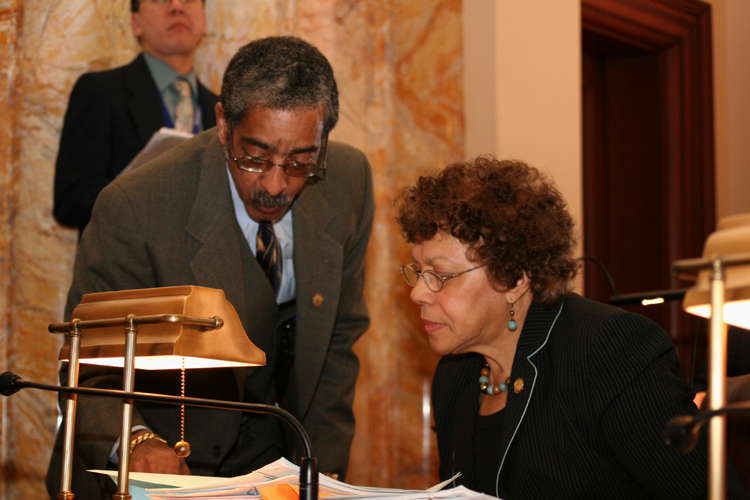
TRENTON – Legislation sponsored by Senators Ronald L. Rice and Shirley K. Turner that would create a pilot program to provide training to women for high-wage, high-demand occupations was signed into law today by the Governor. The law is aimed at promoting economic self-sufficiency of low-income women through increased participation in these fields.
“The goal of the black caucus is not only to continue advocating for greater inclusion of minorities and women in the workforce, but to gain them access to job opportunities that pay fair and competitive wages,” said Senator Rice (D-Essex). “It is essential to understand that this law is not seeking any handouts, but seeking to continue our work in leveling the playing field for minority women. When minority women rise, we all rise.”
“Breaking into traditional male-dominated fields is often difficult for women, particularly low-income women because of discrimination associated with recruitment, and other reasons,” said Senator Turner (D-Mercer/Hunterdon). “We have to do more to remove barriers that prohibit women from entering these high-paying fields and ensure that resources are available to help women gain traction and move up the economic ladder. This program would be a major step forward in that effort.”
The law (S2403) creates a Women’s Vocational Training Pilot Program within the Department of Labor. The program would provide women with education, training, and support for success in the workforce, specifically in nontraditional occupations, defined as a job sector or field where women account for 25 percent or less of those employed in the field. Nontraditional occupations span all major occupational groups including: architects, computer programmers, computer software and hardware engineers, detectives, chefs, barbers, clergy, engineers, computer and office machine repairers, construction and building inspectors, railroad conductors, machinists, truck drivers, fire fighters, aircraft pilots, and construction occupations, as well as certain occupations in the fields of customer service, health care, and tourism.
The pilot program would target women with family incomes below the local self-sufficiency standard, or women in families with income of less than 200 percent of the poverty threshold. “Self-sufficiency standard” means a measure of how much income families need to cover their basic costs without subsidies, as determined or recognized by the State for an applicable local area.
The bill was approved by the Senate in March and approved by the Assembly in June.

